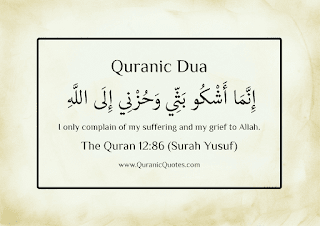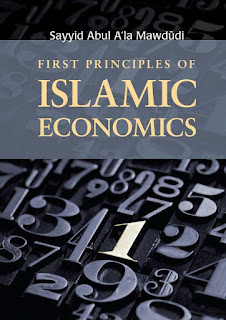Loneliness & Despair
Often this silent epidemic of loneliness, isolation and depression will be raised as the growing concern that it is and specialists from a number of areas will offer their perspective on the matter. The neurologist will study brain chemical activity insisting that serotonin and dopamine activities are irregular and this is the issue that needs to be addressed. The capitalist will focus on the loss of labour potential and the long term economic impact. The technology experts will blame this on the widespread constant usage of tablets and smartphones, that have essentially stifled real life social interactions, in exchange for a cyber-social world that isn’t able to address the real longing for human interactions.
“When the culture and the communities that once connected us to one another disappear, we can be left feeling abandoned and cut off from society”[1]
However, in a world full of specialists offering different perspectives, the elephant in the room is often given the blind eye. Rather, the focus becomes on the symptoms more than the disease itself.
How is it that a country like Britain, enjoying the 5th largest GDP in the world, still has not been able to address the major societal ills that exist within its society such as loneliness, depression and declining family values?
This is further exacerbated when we consider that Britain today is seen by many as the beacon of hope and democracy with a keen eagerness to export its ideology to the rest of the world. Beyond the apparent glamour and the dazzle of its financial capital and the so called famous historical landmarks, the culture of individualism has not offered anything for the people apart from loneliness, isolation and a lack of true purpose.
It is difficult to believe that the secular way of life with its individualistic culture can ever function for the Muslim countries that it was forced upon militarily and ideologically, when in truth, it has only lead to despair and pain for the very people it intended to rescue from a medieval era of suppressed thinking and feudal religious bloodshed. No hearts will be won and no minds will be convinced when the neo-colonialists offer solutions for the very problems they had actually worked tirelessly to manufacture. It is not fitting for this noble Ummah to seek hopes and dreams from nations that tarnish hopes and dreams.
How can the false secular image of happiness bring hope for the Ummah, when it cannot even help the ones who are loyal to its way of life and thinking?
Reeves will claim that teachers, social workers, probation officers and others who can help connect people have been turned into “cogs in a machine”, focused on “meetings, testing, assessing, referring, auditing” [1].
This is hardly a surprise when the state even takes the most respected individuals with the noblest of professions, only to use them as tools to further the ideological intolerance of specific ideas and strands of thinking; effectively using them as spies to further the Prevent agenda and remove whatever little trust that existed between communities. The professions that were once recognised as the nurturers and the backbone support of communities are now being reduced to spies and the propagators of fear and paranoia. The doctors and the teachers that would naturally view their patients and students as receivers of help and support, now are torn between deciding whether they are dealing with a patient, student or a potential suspect.
No amount of top down funding or local initiatives will lead to a long term repair or rectification of the many problems that stem from the secular liberal ideology, which breeds individualism and disregard for people at its very core. This is because Secularism itself is the cause of these ills and it cannot afford anything beyond shallow bonds between people based on self-interest. The separation and rejection of the creator from life’s affairs essentially leaves a void that nothing can mask and the 64.7 million items of antidepressants the NHS issued last year[2] will do nothing to address the underlying pain that lurks in the silent sorrows within society. This is a way of life that has reduced human beings to GDP catalysts that have no real purpose apart from serving their professions and their own self-interests, while servicing a 50-year mortgage.

Indeed, this is a way of life that Islam has a remedy for. It is not strange that the Muslim can fall into loneliness and despair living within such an atmosphere and our Islamic belief is not a cloak of immunity for us. The beliefs that we hold so dear are those that form the very foundations of our Aqeeda and it is these beliefs that once shaped civilisations and a way of life that dominated. Such is the natural outcome when the thinking of a nation is consistent and they refer to the orders of Allah(swt) and his messenger(saw) to shape their very thoughts and actions. Most definitely, it is this lack of consistency between ideology and belief that has left the Muslims in a strange world, where their belief is Islamic, yet the societies they reside in are contradictory to their Islamic systems in every way possible.
Individualism is not an Islamic ideal. The despair and sorrow that results from lifestyles that are based on greed and self-interest are not those that Islam propagates and if these trends were to become reality in an Islamic society; they would only demonstrate the declining health in regards to the values and ideals that the Islamic beliefs should produce.
Islam is a way of life that removes much of the causes of loneliness and isolation through mere implementation and practice of its rulings. In fact, much of the aspects regarding Ibadaat are performed collectively and they encourage Islamic unity and brotherhood. The Salah, the Hajj and the breaking of the fast in Ramadan are performed collectively and it is a gift from Allah(swt) that our Ibadaat brings communities together.
Surah Al-Isra, Verse 23:
وَقَضَىٰ رَبُّكَ أَلَّا تَعْبُدُوا إِلَّا إِيَّاهُ وَبِالْوَالِدَيْنِ إِحْسَانًا إِمَّا يَبْلُغَنَّ عِندَكَ الْكِبَرَ أَحَدُهُمَا أَوْ كِلَاهُمَا فَلَا تَقُل لَّهُمَا أُفٍّ وَلَا تَنْهَرْهُمَا وَقُل لَّهُمَا قَوْلًا كَرِيمًا
And your Lord has commanded that you shall not serve (any) but Him, and goodness to your parents. If either or both of them reach old age with you, say not to them (so much as) "Ugh" nor chide them, and speak to them a generous word.
It is only the deen of Islam that can protect the preservation of family values and the dignity of the people. Islam is not a way of life that only values individuals for their economic potential otherwise deeming sections of people as “economically inactive” or a burden to society that belong in care homes and further isolation.
Surah Al-Infitar, Verse 6:
يَا أَيُّهَا الْإِنسَانُ مَا غَرَّكَ بِرَبِّكَ الْكَرِيمِ
O man! what has beguiled you from your Lord, the Gracious one,
Surah Nooh, Verse 13:
مَّا لَكُمْ لَا تَرْجُونَ لِلَّهِ وَقَارًا
What is the matter with you that you fear not the greatness of Allah?
Any way of life that does not direct the reverence instinct and the instinct to seek a higher being; such a way of life will necessarily bring misery and despair in the lives of people. No amount of drugs, material objects and celebrity worship will ever fill this void.
Surah Ya Seen, Verse 2:
وَالْقُرْآنِ الْحَكِيمِ
I swear by the wise Quran
Most definitely, the Quran is the wise companion of the Muslim such that if he falls into a deep despair that none seem to truly understand, the pondering and reflection on the ayat themselves offer an unparalleled form of relief and comfort. This is from the realisation that Allah(swt) is the “rabb” of all that exists and he maintains, cares and looks after each of our needs.
Surah Yusuf, Verse 86:
قَالَ إِنَّمَا أَشْكُو بَثِّي وَحُزْنِي إِلَى اللَّهِ وَأَعْلَمُ مِنَ اللَّهِ مَا لَا تَعْلَمُونَ
He said: I only complain of my grief and sorrow to Allah, and I know from Allah what you do not know.
This dunya is a temporary abode and our lives are a test. So it is not a surprise that Allah(swt) relates to us the stories of the prophets and the great tests and trials that they faced and overcame with success. They are a source of hope and guidance and it is the shaping of the proper perspective of our lives in comparison to the afterlife that allows us to persevere with struggle.
Indeed, the ideological paradox remains that the societies in which we reside in have made the purpose of life personal pleasure while the purpose of life from the perspective of the truth of Islam is the seeking of the pleasure of Allah(swt) in every single matter.
It will be a constant struggle and a perpetual challenge to internalise and truly live a life in the service of Allah(swt) when the very systems we are governed by are against the very purpose we insist in fulfilling.
References

Comments
Post a Comment